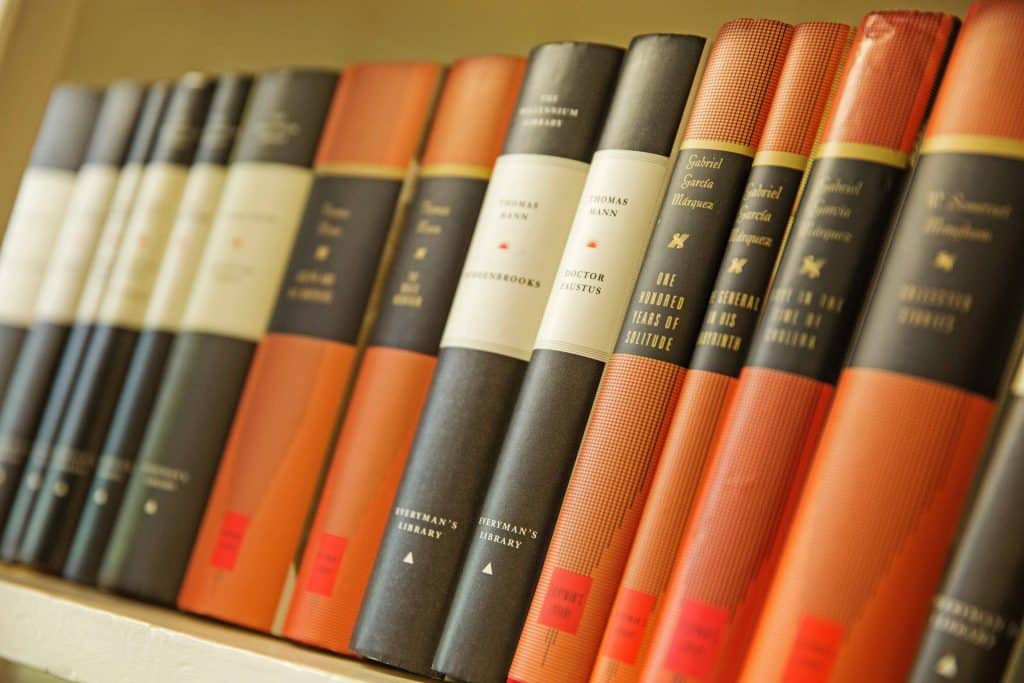English at Forest School
Head of Department: Ms C Nightingale cln@forest.org.uk
All Forest pupils take English and English Literature at GCSE and a significant number continue with Literature to A level.
The English Department considers reading as central to the development of creative, informed, and independent thinking, and so pupils are introduced to a wide range of texts by diverse writers, from key works in the English Literary Canon to contemporary writing, world literature and non-literary and media texts.
Our goal is that Forest pupils encounter the very best that has been written, and that they are both challenged and inspired by the language and ideas they find within these varied texts.
Writing is equally important for accurate, imaginative and confident self-expression. In addition to regular debates, discussions, play-readings and talks, pupils are encouraged to explore ideas and develop their literary skills by contributing to the Forest newspaper, led by A-level students, and are encouraged to enter a range of distinguished competitions.
When they find acquiring the core skills required by English more challenging, teachers liaise closely with Learning Support and dedicated EAL specialists. The department is equipped with resources and students can use The Martin Centre for further research and reading materials.
Outside the classroom, the department organises theatre trips and meeting with established academics and authors from various backgrounds enabling students to further explore authorial intent and the creative process.
Our rich curriculum includes:
- Attendance at A-Level conferences
- Visits to The British Library
- Create and challenging range of “English at University” lectures
- Theatre trips
- Lectures by visiting academics
- Surgeries to support progress
- Workshops and talks by an exciting range of published authors
- Creative writing society
- EMC Poetry conference
GCSE and A-level Overview
GCSE
Students study both the Edexcel International GCSE English Language and Literature qualifications. These qualifications enable students to:
- Engage with and develop the ability to read, understand and respond to a wide range of literary texts from around the world, including reading critically.
- Develop an appreciation of the ways in which writers achieve their literary effects • to develop the skills needed for literary study.
- Explore, through literature, the cultures of their own and other societies.
- Find enjoyment in reading literature and understand its influence on individuals and societies.
- Listen to and understand spoken language, and use spoken Standard English effectively.
- Read critically and use knowledge gained from wide reading to inform and improve their own writing.
- Use grammar correctly, punctuate and spell accurately
- Acquire and apply a wide vocabulary alongside knowledge and understanding of grammatical terminology, and linguistic conventions for reading, writing and spoken language.
A Level
Students study the Edexcel English Literature qualification. This qualification enable students to:
- Read widely and independently set texts and others that they have selected for themselves
- Engage critically and creatively with a substantial body of texts and ways of responding to them
- Develop and effectively apply their knowledge of literary analysis and evaluation.
- Explore the contexts of the texts they are reading and others’ interpretations of them.
- Undertake independent and sustained studies to deepen their appreciation and understanding of English literature, including its changing traditions.
Assessment at GCSE and A-level
IGCSE English Language Components
- Component 1: Paper 1: Non-fiction Texts and Transactional Writing – written examination (2 hours 15 minutes) – 60% of total mark
- Component 2: Paper 3: Poetry and Prose Texts and Imaginative Writing – coursework 40% of total mark
IGCSE English Literature Components
- Component 1: Paper 1: Poetry and Modern Prose – written examination (2 hours 15 minutes) – 60% of total mark
- Component 2: Paper 3: Modern Drama and Literary Heritage Texts- coursework 40% of total mark
A-Level English Literature Components
- Component 1: Drama – written examination (2 hours 15 minutes) – 30% of total mark
- Component 2: Prose – written examination (1 hour 15 minutes) – 20% of total mark
- Component 3: Poetry – written examination (2 hours 15 minutes) – 30% of total mark
- Component 4: NEA (Non-Examination Assessment) – coursework – 20% of total mark
Curriculum Maps – All Years
How can English change the world?
When asked if she felt that in the current political climate it was important that writers are more overt in their politics, Angela Carter stated, “Yes, I suppose I do. There’s a line in a poem of my youth, a poem by Alan Ginsberg called Howl in which he issues this dreadful warning: ‘America, I am putting my queer shoulder to the wheel’. But that sense of weighty responsibility with which some writers approach this fills me with a kind of wild terror. I don’t think art is as important as all that and I don’t think you can do all that much with fiction. It does seem to me that artists, far from being the unconscious legislators of mankind, tend to be parasitic upon those in productive labour. And therefore we really have a big responsibility to deliver the goods. I mean most people would prefer to be artists than to work for Ford in Dagenham after all. Therefore there is a responsibility to deliver the goods, to cheer people up by suggesting that possibly there is hope. I feel that if we all put our queer shoulders to the wheel together, it may be possible to move it an inch, a quarter of an inch, a centimetre, shake it. But it’s very difficult knowing where to start because a certain kind of bland quietism seems to have taken over the intelligentsia.” Forest School’s English Department does not encourage ‘blank quietism’ – we encourage students to ask questions, challenge assumptions and critique the status quo.


